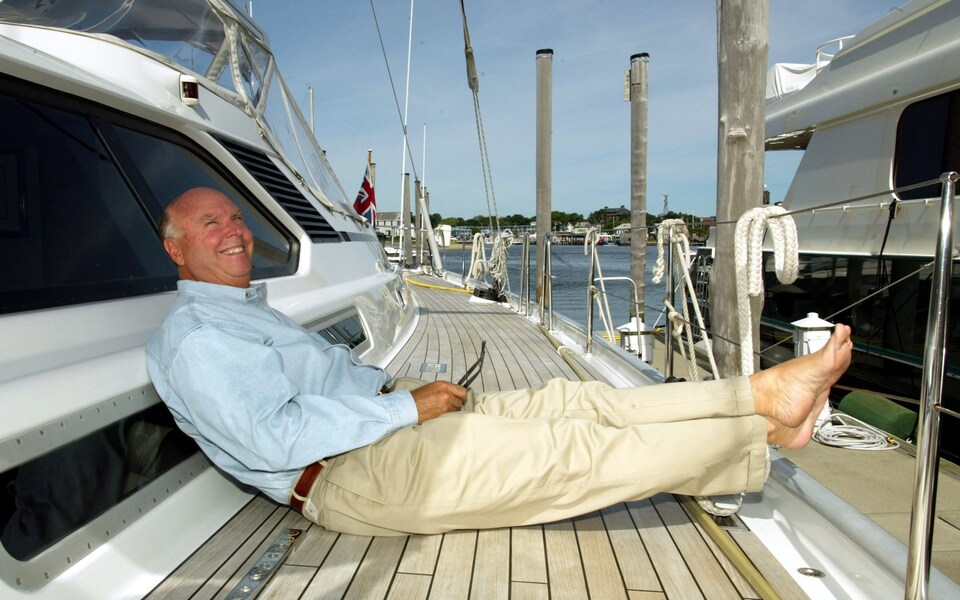Reading J. Craig Venter & David Ewing Duncan’s Microlands for the Telegraph
Scientists! Are you having fun? Then stop it. Be as solemn as an owl, or else. Your career depends on it. Discoveries are all very well for the young, but dogma is what gets you tenure. Any truths you uncover must be allowed to ossify through constant poker-faced repetition. And Heaven forbid that before your death, a new idea comes along, forcing you to recalculate and re-envision your life’s work!
Above all, do not read Microlands. Do not be captivated by its adventures, foreign places and radical ideas. This is not how science is done!
Though his book edges a little too close to corporate history to be particularly memorable, it is clear that science journalist David Duncan has had an inordinate amount of fun co-writing this account of ocean-going explorations, led by biotechnologist Craig Venter between 2003 and 2018, into the microbiome of the Earth’s oceans.
While it explains with admirable clarity the science and technology involved in this global ocean sampling expedition, Microlands also serves as Duncan’s paean to Venter himself, who in 2000 disrupted the gene sequencing industry before it was even a thing by quickly and cheaply sequencing the human genome. Eight years later he was sailing around the world on a mission to sequence the genome of the entire planet — a classic bit of Venter hyperbole, this, ”almost embarrassingly grandiose” according to Duncan — but as Duncan says, “did he really mean it literally? Does it matter?”
It ought to matter. Duncan is too experienced a journalist to buy into the cliche of Venter the maverick scientist. According to Duncan, his subject is less a gifted visionary than a supreme and belligerent tactician, who advances his science and his career by knowing whom to offend. He’s an entrepreneur, not an academic, and if his science was off by even a little, his ideas about the microbial underpinnings of life on Earth wouldn’t have lasted (and wouldn’t have deserved to last) five minutes.
But here’s the thing: Venter’s ideas have been proved right, again and again. In the late 1990s he conceived a technology to read a long DNA sequence: first it breaks the string into readable pieces, then, by spotting overlaps, it strings the pieces back into the right order. A decade later he realised the same machinery could handle multiple DNA strands — it would simply deliver several results instead of just one. And if it could produce two or three readings, why not hundreds? Why not thousands? Why not put buckets of seawater through a sieve and sequence the microbiome of entire oceans?
And — this is what really annoys Venter’s critics — why not have some fun in the process? Why not gather water samples while sailing around the world on a cutting-edge sailboat, “a hundred-foot-long sliver of fiberglass and Kevlar”, and visiting some of the most beautiful and out-of-the-way places on Earth?
It is amusing and inspiring to learn how business acumen has helped Venter to a career more glamorous than those enjoyed by his peers. More important is the way in which his ocean sampling project has changed our ideas of how biology is done.
For over a century, biology has been evolving from a descriptive science into an experimental one. Steadily, the study of living things has given ground to efforts to unpick the laws of life.
But Venters’ project has uncovered so much diversity in aquatic microbial worlds, the standard taxonomy of kingdom, phylum, and species breaks down in an effort to capture its richness. At the microbial scale, every tiny thing reveals itself to be a special and unique snowflake. Genes pass promiscuously from bacterium to bacterium, ferried there very often by viruses, since they survive longer, the more energy-producing powers they can “download” into their host cell. We already know microbial evolution takes place on a scale of hours. Now it turns out the mechanisms of that evolution are so various and plastic, we can barely formalise them. “Laws of biology” may go some way to explain creatures as big as ourselves, but at the scale of bacteria and viruses, archaea and protozoa, wild innovation holds sway.
The field is simply overwhelmed by the quantity of data Venter’s project has generated. Discovering whether microbes follow fundamental ecological ‘laws’ at a planetary scale will likely require massive, monolithic cross-environment surveys — and many further adventure-travel vacations posing as expeditions by provoking tycoons who love to sail.
Here’s the capping irony, and Duncan does it proud — that Venter, the arch-entrepreneur of cutting-edge genetic science, is returning biology to a descriptive science. We are just going to have to go out and observe what is there — and, says Venter, “that’s probably where biology will be for the next century at least.”

